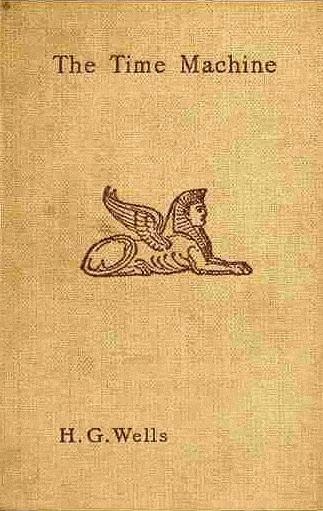 I have written about
the benefits of reading. But now, I want to stress a little more on fiction. Reading
non-fiction also has its advantages, but there is so much, one can take
from reading fiction; mentally. Charles W. Eliot once said that ‘Books are the
quietest and most constant of friends; they are the most accessible and wisest
of counsellors, and the most patient of teachers’.
I have written about
the benefits of reading. But now, I want to stress a little more on fiction. Reading
non-fiction also has its advantages, but there is so much, one can take
from reading fiction; mentally. Charles W. Eliot once said that ‘Books are the
quietest and most constant of friends; they are the most accessible and wisest
of counsellors, and the most patient of teachers’.
There have been quite a
few studies about reading and reading fiction, in particular. One advantage,
which I thought was so true, was that it helps in building empathy. How many
times have I read Harper Lee's ‘To Kill a Mockingbird’ before I found myself seeing the
truth in what Atticus Finch had to say, ‘You never really understand a person
until you consider things from his point of view... until you climb into his
skin and walk around in it’.
Not only in whatever he
said but in the identification, I felt with the character, Scout Finch. Scout
herself was a tomboy, she enjoyed climbing trees, getting messy and running
around with friends. Maybe it was because I was younger when I first read the
book that it took me very little time to empathise with Scout’s character.
 By following Atticus’s
advice, there was an understanding which Scout felt with various other
characters. Her brother Jem, ‘Boo’ Radley and Miss Caroline. The problems with Aunt Alexandra are
something I faced too, with my grandmother and mother. As she constantly
pesters Scout about wearing dresses, I was pestered similarity by my mother. Yet
to see the difference, it took me Atticus’ words and a little more pestering,
before I actually changed. (Not too much, tough)
By following Atticus’s
advice, there was an understanding which Scout felt with various other
characters. Her brother Jem, ‘Boo’ Radley and Miss Caroline. The problems with Aunt Alexandra are
something I faced too, with my grandmother and mother. As she constantly
pesters Scout about wearing dresses, I was pestered similarity by my mother. Yet
to see the difference, it took me Atticus’ words and a little more pestering,
before I actually changed. (Not too much, tough)
When I was growing up, I
found myself reading quite a bit of Agatha Christie and Sir Arthur Conan Doyle.
The brain gets amazing exercise. I saw
myself reading and re-reading the pages to understand the points, which they make
in the book, to see if I could get to the end before Hercule Poirot or Sherlock Holmes. Once in a while, I did too. Your problem solving skills could also
benefit from reading similar novels.
Let us remind ourselves
of all the stuff, which we read and studied in school. I found myself understanding
and sympathising, when I read historical novels, which had subjects, which I could
relate to chapters in my history text book. ‘The Empire of the Moghul' series by
Alex Rutherford, to Indu Sundaresan’s ‘Taj Trilogy’ and ‘The Mountain of Light’, all
have subjects pretty close to the topics which, we studied in school (Not with
too much interest though).
 Medical and psychological
aspects also are dealt with and understood better through fiction. Whether it
was Robin Cook’s ‘Coma’ or Ken Kesey’s ‘One Flew Over the Cuckoo’s Nest’. These
books have us understanding the problems, while
simultaneously increasing our knowledge. They
make you kinder because you actually get what is wrong with somebody afflicted
with a particular illness.
Medical and psychological
aspects also are dealt with and understood better through fiction. Whether it
was Robin Cook’s ‘Coma’ or Ken Kesey’s ‘One Flew Over the Cuckoo’s Nest’. These
books have us understanding the problems, while
simultaneously increasing our knowledge. They
make you kinder because you actually get what is wrong with somebody afflicted
with a particular illness.
Science fiction helps
us with concepts, which we are either, not used to or have never seen. For example,
HG Wells ‘The Time Machine’ or even JK Rowling’s ‘Harry Potter’ and his invisibility
cloak. Both these were merely concepts yesterday, but today they could almost
be reality.
Arthur C Clarke said in his novel, ‘2001: A Space
 Geography is a subject
too, for a few novels. For example, the English geography, complete with its
hills and rivers are explained in Enid Blyton’s books, while Afghanistan’s
hills are handled in Khaled Hosseini’s ‘The Kite Runner’ and 'A Thousand Splendid Suns’. The two also dealt with the historical and sociological aspects of the
place, as well.
Geography is a subject
too, for a few novels. For example, the English geography, complete with its
hills and rivers are explained in Enid Blyton’s books, while Afghanistan’s
hills are handled in Khaled Hosseini’s ‘The Kite Runner’ and 'A Thousand Splendid Suns’. The two also dealt with the historical and sociological aspects of the
place, as well.
‘Fiction reveals truths
that reality obscures’ said Ralph Waldo Emerson and this statement has never
been truer, when you read these books. Due
to the novels you have read, you become sharper and more open to ideas and
experiences, which in turn make one’s decision making easier. Imagination grows
as does a person’s intellect.
So, which fiction is up
for grabs, today? :)






